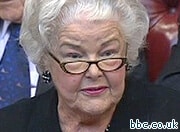Peers have rejected an amendment that would have made sex education compulsory across all state-funded primary schools in England.
The House of Lords voted down Labour’s proposals by 209 to 142.
Alongside compulsory sex education, the amendment proposed that parental withdrawal rights would only apply to children aged under 15.
Parents
Baroness Jones of Whitchurch, one of the Peers who tabled the amendment, told the Lords on Tuesday night, “as policymakers we are behind the curve on this issue”.
But Baroness Eaton, who disagreed with the proposals said that she felt “very strongly that parental involvement should exist”.
Lord Northbourne added: “Not all relationships are about sex” and the ongoing and nurturing relationships between “both parents and the child are crucially important”.
Appalled
Critics of the amendment said it would also increase the likelihood of children being exposed to unsuitable materials.
Conservative Baroness Knight of Collingtree said she was “appalled” to find that, “children as young as four were being told in sex education how to perform the sex act”.
“What concerns me is that there seems to be no understanding that there is a time in a child’s life when it is not a very good idea to talk about sex”, she explained.
Liberal Democrat Baroness Tonge, who was in favour of the amendment, argued that “sex education has to occur in schools, because parents simply cannot be relied on to give their children the right information”.
Announcement
The Government also announced in an email to headteachers that all primary and secondary schools in England will have to publish their sex education curriculum on their website.
It said: “All schools must publish their school curriculum by subject and academic year, including their provision of personal, social, health and economic education.”
Colin Hart, director of The Christian Institute, said: “I strongly welcome the requirement for schools to set out their approach on their website in this sensitive area.
“It would be ideal if parents could actually see online a copy of the materials themselves. The potential threat of a parental backlash would help block the use of inappropriate materials”, he added.

